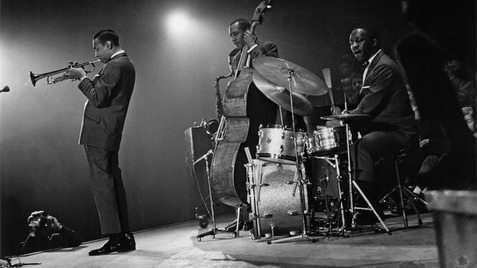 Kasper Collin's I Called Him Morgan is a film about the importance of forgiveness, an ode to empathy, a transfixing documentary that doesn't settle for the simple answers to a complex story, understanding that much of life is far more complex than the simple conclusions many draw in life for the sake of simplicity. Deconstructing the story of celebrated jazz musician Lee Morgan, who was shot dead by his common-law wife Helen during a gig in New York City on a cold and stormy night, Kasper Collin's film takes an investigative lens to this complex relationship, showing no judgement about the end results per se, only attempting to understand how things could have gone so wrong. I Called Him Morgan is a love letter to not just celebrated jazz musician Lee Morgan but also Helen, a film which beautifully manages to juxtapose each of their intertwined lives in a way that captures a perilous, yet exuberant relationship, one which was constantly strained by the outside temptations of drug culture and a time in American history in which African Americans felt extreme pressure to assimilate to the mainstream, white culture of America. In crafting this unique and spellbinding story of two unique personalities and star-crossed lovers, Kasper Collin uses an abundance of archival footage, as well as in person interviews with close friends and various members of the jazz community, dissecting this flawed, yet extremely talented artist who was gone too soon. The heavy use of archival footage interplay beautifully with Lee Morgan's stunning trumpet, with the film creating a atmospheric mood of mystery and impending sadness, in a lot of ways encapsulating the artform of Jazz music itself in the way the story is told. It would have been so easy for Kasper Collins to present a one-sided tragedy of a talented artist gone too soon, but the filmmaker understands vividly that this story is far more complex than this, detailing how both Lee and Helen each owed so much to each other, regardless of the tragic outcome which followed. In a lot of ways, the film captures the importance of forgiveness, being a story of redemption in a lot of ways, detailing how the insufferable guilt Helen experienced, due to her violent crime of passion, drove her to eventually find a form of salvation for herself back in Wilmington. I Called Him Morgan details how an instant moment of insanity or emotional anguish can have grave results that change everything, with Helen's violent outburst transforming the lives of so many through an act that lasted mere seconds. Through the shock, and sadness of Helen taking Lee's life, the film exhibits how she also was primarily responsible for saving his life in a lot of ways, literally lifting him out of the gutter when his drug addiction has decimated him, pushing this great talent to be great when it appeared he may be lost to addiction and depression. Emotionally heavy, utterly fascinating, and extremely mature, Kasper Collin's I Called Him Morgan is a powerful documentary about two utterly unique personalities and the love they shared, detailing how their common bonds centered around music brought them together while displaying the tragic circumstances that ultimately tore them apart.
0 Comments
 Rupert Sander's Ghost in The Shell's visually striking world-building ultimately can't overcome the film's underlying simplicity, being a film that feels very by-the-numbers, plodding along with no real sense of spirit or emotion, following the narrative beats in which the film shows only an interest in reaching its conclusion, uninterested in the moral complexities of the journey itself to get there. Taking place in the near future, Ghost in the Shell is the story of Major, who is the first of her kind- a cyber-enhanced super-soldier whose only organic material is the human brain. A weapon for the government, Major is devoted to stopping the world's most notorious criminals, but when she learns that she was lied to about her past, she sets out to rediscover her identity and find out who is responsible for essentially taking her life from her. Full disclosure: Having not seen the original Ghost in the Shell in nearly two decades, much of the original film's story-line and themes are lost on me, yet the new adaption dances around fascinating themes of individualism and collectivism, before falling victim to the same old, tired 'corporate greed' narrative that makes much of cinema these days unbearably daft and intellectually bankrupt. Through Major's journey to discover herself, Ghost in the Shell touches on some fascinating themes of the importance of individualism, exhibiting how technology and "progress" almost always strip away the individuals' free will, with automation being the ultimate enemy of an individual. Early on the film fully trumpets that our individualism, what makes us different and free as human-beings is our greatest virtue, yet the film fails to draw the distinction between humanity and individualism by the time the credits role, instead only making this a man vs. machine assertion. Major, the victim of a government program "designed to protect us", is a grave threat to the powers that be due to her desire to think and act for herself, but the film fails to explore this idea of forced collectivism by authoritative forces, instead it takes the easy way out through the character of Cutter, a greedy corporatism whose contract with the government enables him to effectively steal the mind and spirit of individuals to fuel this anti-terrorist government program. The film has so much potential in its ability to present a lens to the current state of our own government and the world, revolving around fighting terrorism and rampant cronyism, yet it lazily falls back on this simplistic character of Cutter, whom it can place all its blame. Besides the massive missed opportunity the film presents on a cultural and philosophical level, Ghost in the Shell's direction is lacking, as Sander's once again shows himself as a director who can effectively create an aesthetic but struggles mightily when it comes to action set pieces. Much of the action throughout Ghost in the Shell is underwhelming, especially when juxtaposed against the visually striking aesthetic, delivering straight-forward gunplay and mediocre fight choreography that by-and-large fail to pay off the film's fantastical world. A by-the-numbers remake that lacks any true soul, outside of its rather heavy-handed assertions about our humanity being a virtue in a digital age, Rupert Sander's Ghost in the Shell is a visually striking but ultimately vapid piece of cinema that is perhaps best observed on "mind-enhancing" drugs. 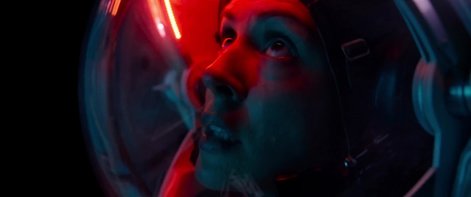 Crafted in the same vein as Ridley Scott's iconic Alien, Daniel Espinosa's Life is a survival horror film set in the close confines of space, which finds six astronauts unexpectedly coming face-to-face with a hostile alien life form. While Life's obvious comparisons to Alien are hard to deny, it's a rather lazy comparison in a lot of ways, as Daniel Espinosa has crafted a film that does enough to separate itself from the Ridley Scott's film, due primarily to the film's much more optimistic tone in the onset, which slowly descends into panic, chaos, and a biting cynicism about humanity that it hard not to gleefully enjoy. In Life, a crew aboard the International Space Station has just made one of the most important discoveries in human history, the first evidence of extraterrestrial life. Tasked with studying the sample, the crew's exuberance over their groundbreaking research soon turns deadly, as the organism becomes hostile towards the crew. Trapped in claustrophobic setting of the International Space Station, with a mysterious creature that they don't know much about, the crew enters in a deadly game of survival which could not only determine their fate, but the fate of the human species on Earth. A tightly paced, engaging horror film, Daniel Espinosa's Life wastes little time getting to the meat of its story, setting up a tense experience in which the fate of the various crew members remains unpredictable from start to finish. The film's creature is unique and horrifying, in what is perhaps best described as a space squid, a rapidly growing creature thats brute strength is only matched by its intelligence. Life falters at times when it aims for moments of levity early on, thanks Ryan Reynolds, and while much of the film's emotional beats fall flatter than intentioned, I couldn't help but find myself enjoying the cynical undercurrent which envelopes the entire film. As horrifying as this mysterious creature is, Daniel Espinosa's Life as a film attempts to, sometimes haphazardly, deconstruct life and death in the scope of survival, demonstrating how this mysterious and deadly creature isn't merely killing for joy or pleasure, but doing what it deems necessary for the sake of survival. While it doesn't completely work in the context of the film, one could certainly argue that this creature is simply trying to survive in its own right, with humanity's intrusion into its habitat for the sake of science, setting it off in the first place. Couple this observation with David Jordan's (Jake Gyllenhaal) overall cynicism about humanity, and Life becomes a fascinating study of humanities inherent flaws, whether intentional or not, deconstructing the inherent selfishness towards one and other we all share. The crew members themselves don't adhere to this message, quite the opposite when faced with the horrific circumstances of a hostile alien life form, yet Life never wavers from its undercurrent of cynicism about the relationship between life and death, fully acknowledging that the creature itself may have the same rights to life as our main protagonists. While Daniel Espinosa's Life is best enjoyed as a tight, intense science fiction horror film where one doesn't have to think, the film does offer up some fascinating understated commentary on humanities' darker aspects, with the film's sinister conclusion only further supporting the above assertions about Life's underlying message about life, death, and survival. 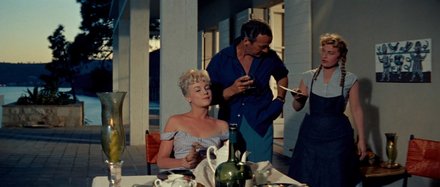 Otto Preminger's Bonjour Tristesse is a story of love and betrayal, a film which loudly proclaims that a virtuous life is one built around structure, loyalty, and hard work. Set primarily in the French Riviera, Bonjour Tristesse is centered around seventeen-year-old Cecile, a spoiled young woman whose lived a life of exuberance with her playboy father, Raymond, whose shown little interest in getting remarried, enjoying the freedom of single life and the carnal pleasures that accompany it. Spending the summer on vacation, Cecille and Raymond are accompanied by Raymond's girlfriend, Elsa, whose looks outweigh her intellectual acumen. When Anne Larson, a successful designer, arrives in their seaside villa after being invited by Raymond, things begin to change for Cecille, as Raymond begins to fall in love with Anne, bringing structure and responsibility into young Cecille's life. Afraid of Anne's way of life spoiling her fun, Cecile begins to grow envious and enraged, devising a diabolical plan to separate the two lovers through deception, a plan which inevitable leads to tragedy and emotional ruin for both her and her father. Told primarily in flashback, Otto Preminger's Bonjour Tristesse opens in Paris, introducing Cecille as a character who is a constant state of depression, a woman who is haunted by the failures of her past, unable to feel any sense of happiness in her current state of misery. Told completely through the lens of this character, much of the film is told via flashback, with Cecille narrating this story of jealousy and ultimately betrayal that took place on the French Riviera. Bonjour Tristesse is a story about the importance of virtue, responsibility, and personal drive, with Anne being a woman who brings a higher sense of morality to these two characters, unwilling to accept their pleasure-seeking as an acceptable way to go through life. With Anne becoming a motherly figure, a responsible woman who reins in Raymond's carefree lifestyle, she is greeted by Cecille with animosity, as the young woman's world is flipped upside down by this complete reversal in attitude by her paternal figure. Enraged by being forced to be something she is not, and viewing Anne as an obstacle that stands between herself and her father, Cecille sets out for revenge through deceitful practices, too naive to understand the grave and unimaginable consequences of her actions, and the torment it can cause, not only to Anne, but also her father who seems to be genuinely happy after finding Anne. Cecille's selfishness causes this tragedy, with her inability to let anyone else into her father's life being the core reason, and this is what causes Cecille so much torment in present day, as she must now life with that fact that she herself destroyed her father's potential chance for happiness. The tragedy of Anne's character, directly caused by the jealously and rage of Cecille, makes it very clear that Otto Preminger's film supports Anne's lifestyle more than that of Raymond or Cecille, yet the way the film scathingly deconstructs self-indulgence and excess as a bad thing does deserve criticism, as it opines that there is a right way and wrong way for people to live life. It's a judgmental film in this sense, pushing the idea that a structured and hard-working lifestyle is virtuous and needed for having a fulfilling life. Simultaneously, the film finds little good in the lifestyle of Raymond, a character whose more interested in living a carefree life of exuberance, one where structure and societies' preconceived notions of what is proper are shattered by his carefree ways. Pleasure is a bad thing in Otto Preminger's film, and while one can't deny that Bonjour Tristesse rightfully skewers Cecille's jealously-driven selfishness, its attacks on pleasure and its self-assured nature of telling the audience the proper way to live is off-putting, to say the least, though certainly a product of its time. Make no mistake though, this is a film about Cecille's fall from grace, and Otto Preminger delivers a structure that is wholeheartedly about capturing this through the way the story is told. Structurally oscillating back and forth between the present and the past, Bonjour Tristesse visually captures the emotions of our central character through its visual aesthetic. While the opening scene, the present, is shot in stark black and white photography which is cold and oft-putting, the past on the French Riveria is presented in bright, lavish color, with the vivid nature of the aesthetic encapsulating Cecille's youthful exuberance, before so much went so wrong. Preminger's direction is nuanced by far from over-bearing, with possibly the high point of the film coming towards the end of the film when Cecille's plan succeeds. When Anne catches Raymond with another woman, Preminger's camera never leaves her side, keeping the sexual nature of what Anne is witnessing off screen and up to the viewers imagination, intent on exhibiting the pain and torment of betrayal felt by Anne. A well crafted story about virtue and the destructive nature of selfishness, Otto Preminger's Bonjour Tristesse is a fascinating, albeit forceful study of the importance of responsibility and structure in life. 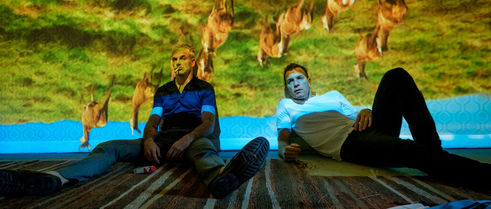 Danny Boyle's T2 Trainspotting is a worthy predecessor to the breakout original film, a sequel that is bristling with the same energy that made the first film so memorable, while maintaining an ability to differentiate itself from the nihilistic drug opus through its ability to deliver a story about consequences, morality, and maturity. Taking place twenty years after the events of the first film, T2 Trainspotting finds Mark Renton returning to Edinburgh for the first time since betraying his friends and running off with most of the money from the scam. Intent on reconnecting with Spud and Simon, Mark soon finds that each of his friends' lives have hardly improved over the past two decades, each stuck in a perpetual state of failure. While Spud struggles to get his life back together, routinely falling back off the wagon and into addiction, Simon is still stuck in the confines of his father's decrepit bar, living on the outskirts of Edinburgh, which has seen itself modernized via gentrification. While Mark, Simon, and Spud attempt to reconcile, the psychotic Begbie makes his way out of jail, having the fresh scent of revenge on his mind. A natural progression for a sequel to the original, Danny Boyle's T2 Trainspotting is a film that maintains the first film's renegade spirit, while still examining the morality and consequences of its character's actions as they reach middle age. These characters wouldn't be classified as upstanding citizens, not even close, but the film recognizes that they don't have to fit into what society terms is proper or just, instead they simply have to adhere to their own sense of empathy and morality towards on and other. These characters grew up as junkies and thieves, and while the film doesn't outright apologize for that, or touch on some form of type of stringent moral equivalency, the film details how each of these characters must deal with the consequences of their past, facing head-on at times the trauma, despair, and evil which their actions created. Even Bigbie, a psychotic character who spends most of the film in a rage-fueled pursuit of revenge, has at least one moment of clarity, wishing his son the best, showing a sliver of empathy for his son, whom he wishes will be a better man than him. Featuring the same high-energy direction from Danny Boyle which sees the filmmaker intertwine surrealistic touches throughout this story, T2 Trainspotting is visceral yet quietly contemplative, delivering in a strange way a film that is far more optimistic and hopeful compared to the first film's raw nihilism. Detailing the journey of three characters in Mark, Simon, and Spud, T2: Trainspotting exhibits three men who've seen life pass them bye thanks to their actions and past mistakes, establishing that it's never too late in life to correct past mistakes. 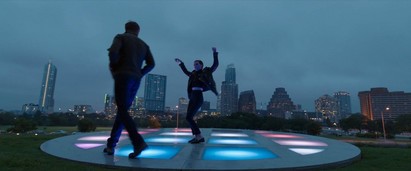 Terrence Malick's recent films have seen the filmmaker evolve further and further away from traditional storytelling, with his latest effort, Song to Song, being an atmospheric and introspective mood piece about what it means to be free. Set against the Austin, Texas, music scene, Song to Song is the story of struggling songwriters Faye and BV, who enter into a chaotic whirlwind of a relationship, eventually finding themselves ensnared by their own dreams and desires, as well as the malevolent force of the film, music producer and rock mogul Cook, whose enrichment in life comes from power and control. While Terrence Malick's last feature, Knight of Cups was one note and a bit simplistic thematically, Song to Song is a much richer experience, detailing the inter-tangled relationships of four characters, each explored on deep, dare I say, spiritual level. Showing little concern for linear storytelling or time itself, what Terrence Malick has created with Song to Song is an immersive experience about individuals trying desperately to find themselves in life, stumbling and falling as they seek enrichment and peace of mind. Through a rock 'n' roll landscape full of seduction, betrayal, promises, and shattered dreams, Song to Song is a beautiful, unconventional love story, one that perfectly encaptures the uncertainty most individuals feel in life, this feeling of drifting, stuck up in something so much larger than oneself, unsure what to take and what to leave behind. Malick's film doesn't pretend to know the answers, and that's what makes it profound, as Song To Song focuses on capturing the vast array of emotions its characters go through, some bad, some good, all a part of what makes life worth living. Malick's film personifies the essence of love very well by the time its credits roll, detailing how lust, sex, and desire are essentially subversions of what true love is, what BV and Faye enviably seek, with seductions and personal desires being almost dare I say, a distraction from the meaningfulness of true connection and a shared sense of love. Music mogul Cook, whose pride and obsession with power is the malevolent force of the film, a man who shows little sympathy towards anyone or anyone around him, craving more power and control, while selfishly using nearly anyone or anything around him to elevate himself. He has no concept of what love is, only seduction, which eventually leads him to his own sense of emotional ruin. Faye and BV are characters motivated by their own desire to rebel, and be something different than what society wants them to be, yet while doing so they miss the special relationship they share right in front of them. In this sense, Song to Song is a commentary on youth and rebellion, deconstructing the unfair reality of life that sees young individuals, so inexperienced with the world itself and their own true desires, that they head down misguided paths. How can the young be so assured in what they want out of life when they have just started to live on their own and experience the world for themselves? A question that Terrence Malick's Song-to-Song explores in melancholic detail throughout this opus of image and sound. While Malick's overuse of internal dialogue does begin to wear itself thin, coming off as lazy at times when it comes to character exposition, Malick's latest effort, Song To Song, is a beautiful deconstruction of love and life, a film which is honest about the uncertainties, insecurities, and general ups and downs of life, with the filmmaking creating another beautifully-rendered introspective film that shouldn't be missed.  Eugene Green's The Son of Joseph is a rich, endlessly layered piece of film-making which uses christian mythology to tell an astute tale of morality, paternity, kindness, and hope. More playful than most of Green's previous work, The Son of Joseph is centered around Vincent, a young, discontent Parisian teenager, who feels nothing but detachment from the modern world. Intent on finding his father, despite his mother's best attempts to hide his identity from her son, Vincent soon learns that his father is Oscar Pormenor, an egotistic and cynical Parisian publisher, a man whose vile arrogance and selfishness only push Vincent further into the abyss of vexation. His rage over his father's actions nearly send Vincent himself down a path of violence and self-destruction, with Vincent's uncle, and Oscar's much more gentle, good-hearted brother, Joseph, providing an alternative path for Vincent, one where kindness, optimism, and introspection provide hope for a young boy who needs it. A profound story of morality told in an utterly creative and resonant way, Eugene Green's The Son of Joseph is soul-affirming in its ability to exhibit the importance of kindness and love in a world in which we as individuals seem to be growing farther and farther detached from one and other. The importance of family and paternity, specifically the guidance which is needed to shape young minds, is captured in vivid detail throughout Green's latest masterwork, with Joseph providing some semblance of structure to young Vincent, while still allowing him to find himself and his own personal liberty. Steeped in religious symbolism, The Son of Joseph recognizes how both family and religion both serve similar purposes in regards to hope and optimism, with Vincent's journey to discover himself being aided by the guidance of Joseph, a man who encourages Vincent to be himself, bestowing a sense of faith and optimism in the young boy which he so desperately needs. Green's film is so rich and layered that I couldn't even pretend to touch on all the various themes and ideas which it navigates, but simply put, this film is able to capture what it means to be alive, a story drenched in hope, which captures the exuberance and possibility that awaits all individuals who wish to see life itself as a beautiful gift. Played by Matheiu Amalric, Vincent's father-in-blood is a character who lives completely for himself, a man who serves his primal desires of power and control, reaching it through his financial successes as a publisher. This man is portrayed as an outright monster for much of the film, but in the final moments this rich arrogant man is reduced to rubble, the realization that he himself is nothing to his kinder, more hopeful brother, who has replaced him and found personal enlightenment through the paternal relationship he shares with Vincent. A playful, optimistic triage of family, faith, and morality, Eugene Green's The Son of Joseph is just the latest reminder that Green is one of the most impressive filmmakers working today, a rich, endlessly layered, soul-affirming piece of art that his hopeful and optimistic about the human condition, understanding that empathy and morality are the key to a life of happiness, fulfillment, and enlightenment. 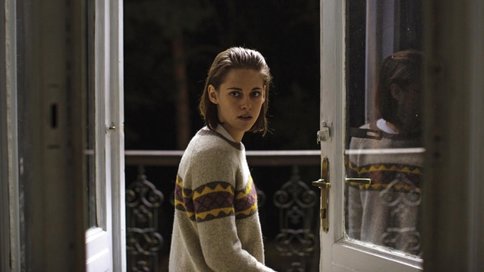 Olivier Assayas Personal Shopper is a story of grief masquerading as a ghost story, a film which is brazen and unconventional, detailing the exploits of Maureen, young American woman in Paris, who is struggling to move on from the death of her twin brother, Lewis, who was a spiritual medium. Working as a personal shopper for a high profile celebrity to pay the bills, Maureen is infatuated with reconnecting with her deceased brother one more time, emphatically believing this in an attempt to find some semblance of closure. To call Olivier Assayas' Personal Shopper a ghost story would be selling this film short, as the prolific french filmmaker has created a introspective and enigmatic experience which transcends the confines of mere ghost story, delivering a story about grief, perseverance, inadequacy, and spirituality. Personal Shopper is a film that routinely subverts perspective and reality, blurring the lines completely between the world itself and that seen through the eyes of our main protagonist, giving Assayas an adequate playing field to touch on a host of fascinating themes and ideas. At the center of this film is what I would describe as the high point of Kristen Stewart's acting career, as the actresses continues to completely transform from her days of delivering droll, mainstream performances. Maureen as a character is complex, beguiling, and detached, and Kristen Stewart plays the part to near perfection, delivering a complex and riveting performance that completely matches the complexity of themes and ideas which Assayas wishes to explore in his story. Assayas film never rejects spirituality or the idea of an afterlife, nor embraces it completely, being a film that is ambiguous in nature, understanding that the real meat of his story lies in the introspective analysis of a character who struggles to find her own sense of happiness and comfort after the death of her brother. The memory of Lewis haunts Maureen to her vary core, a character who is simply frozen in time, unable to move on or look forward, stuck in a perpetual state of grief. Keep in mind, much of the film is thankfully understated when it comes to these emotional complexities, with Personal Shopper exhibiting the importance of living to the fullest not in spite of but for the memory of those one loves. Personal Shopper is bold in that Assayas rejects typical structure and even logic in aspects of its story, often presenting nearly conflicting perspectives, which make it nearly impossible for the viewer to decipher whether the spiritual, ghost story aspect of the film is in fact real or simply in the head of Maureen, a character who is continuously rattled by grief and a sense of longing related to being unable to find herself after the death of someone she felt so close too. Assayas choice to remain ambiguous serves a larger purpose than deconstructing the idea of whether an afterlife of any sorts exists or not, showing not much interest in this debate, unwilling to be headstrong in either assertion, instead recognizing how faith and spirituality can be forces of healing, whether imaginary or not. A complex, unique, and quietly compelling story of grief and feelings of inadequacy , Olivier Assayas' Personal Shopper is story about the importance of finding freedom and liberty from one's own doubts and insecurities, a film that recognizes this can come from many different avenues, using a ghost story structure to deliver a unique, thoughtful experience. 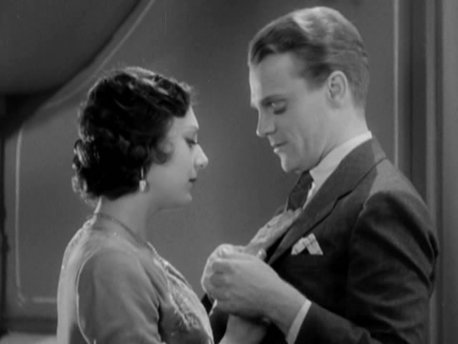 Howard Hawk's follow-up to Scarface, The Crowd Roars is a fast-paced racing drama centered around Joe Greer, a top-ranked race car driver, who is dedicated to his craft, unwilling to let anything come in-between him and the race track. Joe's longtime girlfriend, Lee, is growing impatient with him, fed up with Joe constantly placing his profession before her. All the fame and fortune which Joe possesses will eventually fade, yet Joe is reluctant to commit fully to this woman, fearing that he will lose his edge on the race track in which precision is everything. After another argument about their future together, which sees Lee reluctantly accept Joe's commitment to racing over marriage, Joe returns to his hometown fresh off a win in Indianapolis, intent on competing in a local race for the masses. On his arrival, Joe discovers his kid brother, Eddie, is adamant about following in his footsteps, but Joe is reluctant, knowing full well of his brother's penchant for being spontaneous and by result reckless. After impressing in the local race, Joe has no choice but to sign his kid brother, but soon Joe's intuition about his brother comes to fruition, when his kid brother falls for the fast-moving Ann, causing a rift between the brothers which threatens to end their relationship for good. Howard Hawks' The Crowd Roars is a minor effort from the highly acclaimed filmmaker, yet it still offers enough excitement and drama to keep the viewer engaged from start to finish. The story itself gets a little clunky though in the end, as Lee admits to being one of the driving forces between separating Joe and his brother, in an effort to show him what she is going through - how it feels to not have someone you love. While I get what the filmmakers are going for, it simply doesn't work as well as it should, as I found myself constantly thinking that there must have been a more efficient way to get Joe to realize this, without causing a huge rift between him and his brother that also resulted in the death of a close friend. The main thing that stands out about The Crowd Roars is Hawks' direction, particularly when it comes to the racing sequences, exhibiting the intense and visceral nature of these races where life itself can hang in the balance. Made in the early thirties, Hawk's effectively captures the chaos of car racing, using rear projection and well-designed punch-ins that truly capture the raw energy of the sport. The Roar of The Crowd's story is archetypal, with its main protagonist Joe going from having everything to having nothing, with the heart of the story being his realization that family and love itself must always be placed first and foremost. While The Crowd Roars is far from Howard Hawks best films, it's worth a look alone for the car racing sequences, along with James Cagney doing what he does, delivering another strong, steadfast performance.  Diego Ongaro's Bob And The Trees is a minimalist character study of Bob, a fifty-something year old logger, who is struggling to make a living during the deep winter in rural Massachusetts. Bob is a man who has never been afraid of hard work, yet the ever-changing environment around him, related to both the economy and his aging body, have left him in a constant state of stress and struggle, with pressure mounting. When his beloved cow is mysteriously wounded, and his latest logging job stumbles into unforeseen problems, Bob's mental state begins to slowly unravel, as he begins to suspect that foul play is involved. Diego Ongaro's Bob And The Trees is a slow-burning exercise in tension and internal struggle, an introspective and meditative experience detailing a man in Bob whose increasing desperation leads him down a path of anger and hostility. As a character, Bob is a man who is slowly grated by the stress and uncertainty of his livelihood, with the film doing a fantastic job at documenting his slow descent into increasing desperation and by proxy anger and hostility towards others. Bob's profession, one rooted in masculinity, toughness, and resolve, makes it hard for him to show weakness or ask for help, being a character who has always been primarily responsible for providing for his family. He wishes to shield his wife and son from the economic issues they as a family are facing, yet all he does is alienate himself from them through his actions. Bob is a character who has grown detached from both his wife and son, a meat-and-potatoes type of guy whose too stubborn to ask for help. He is a character who is a self-made man, yet his inability to ask for help or seek support from others have left him in a place of alienation, with his exterior toughness and masculinity masking his underlying insecurities related to his fear of failure. As a characterization, Bob feels like an honest and genuine portrayal of a blue-collar logger, yet the film subverts expectations, in an successful attempt to avoid caricature, showcasing a man who also happens to have a soft spot for Gangster Rap- Immortal Technique, to be specific. While this slight character decision may seem superfluous on the surface, it only strengthens the story and characterization in the long run, as Bob feels much more like an independent, organic human-being with his own unique problems and insecurities. Detailing the importance of never being too headstrong to ask for help, Diego Ongaro's Bob and the Trees is an introspective character study of one man's struggle to survive in an ever-changing environment which surrounds him. |
AuthorLove of all things cinema brought me here. Archives
June 2023
|
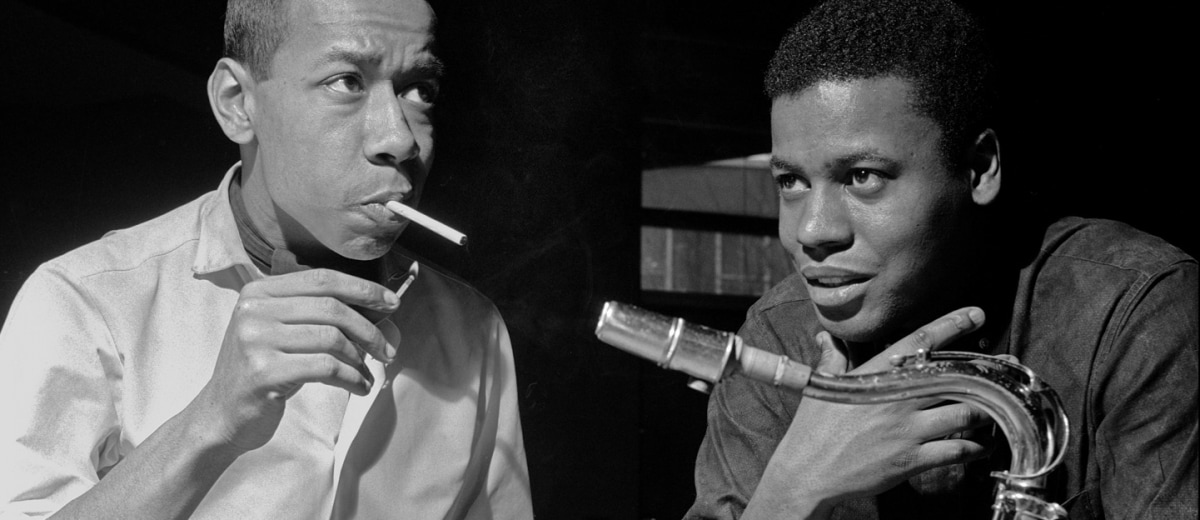
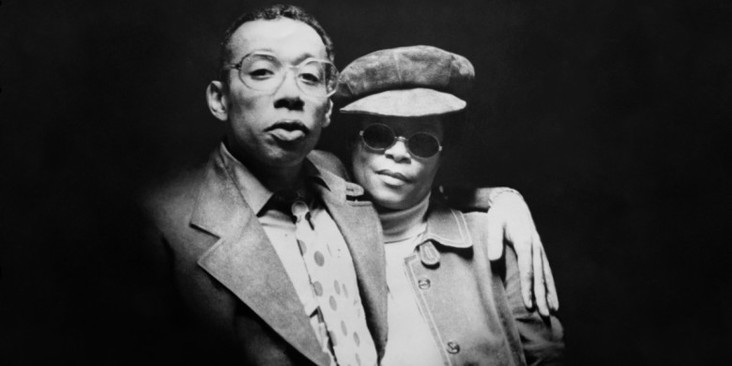

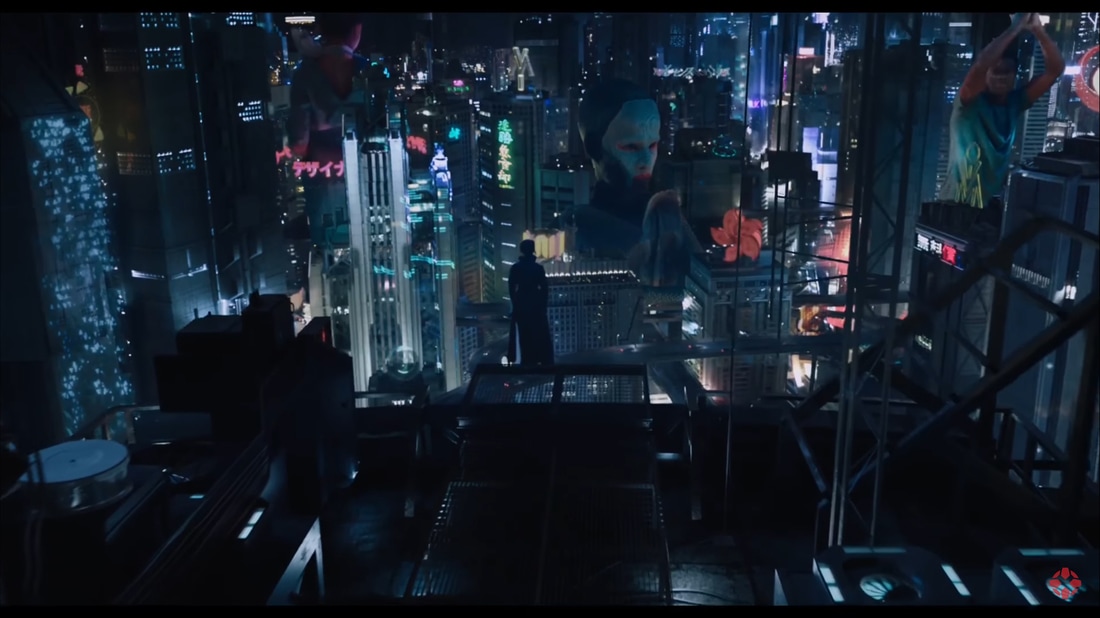
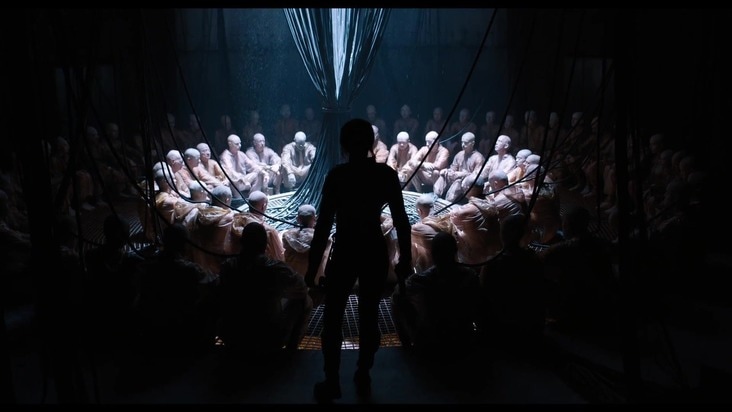


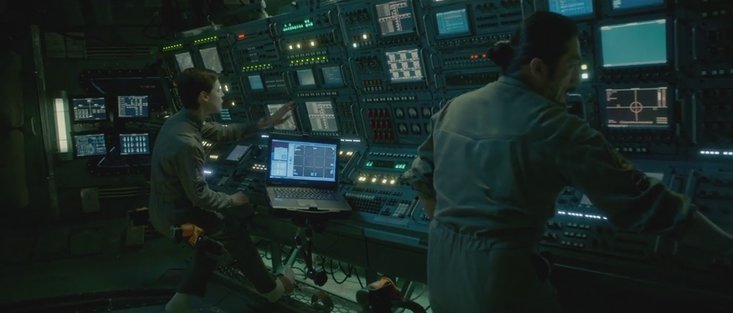
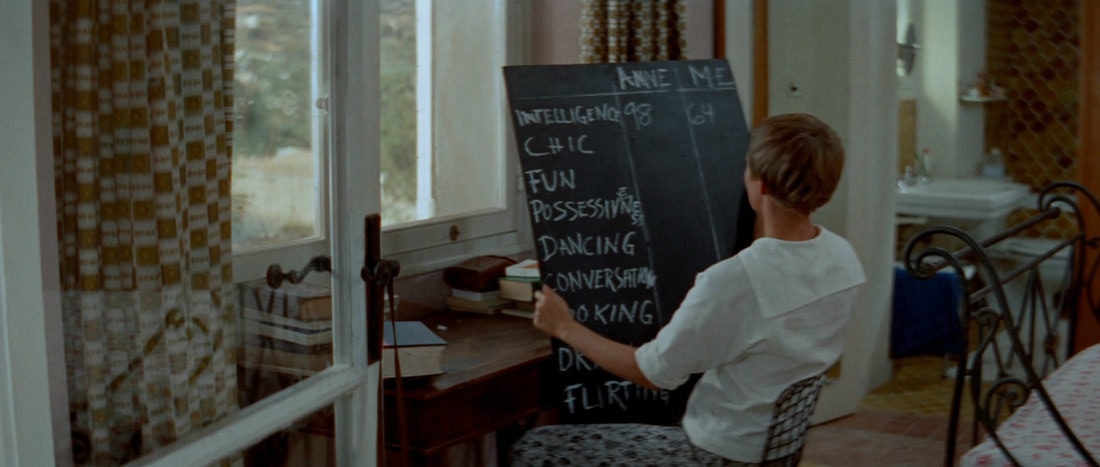
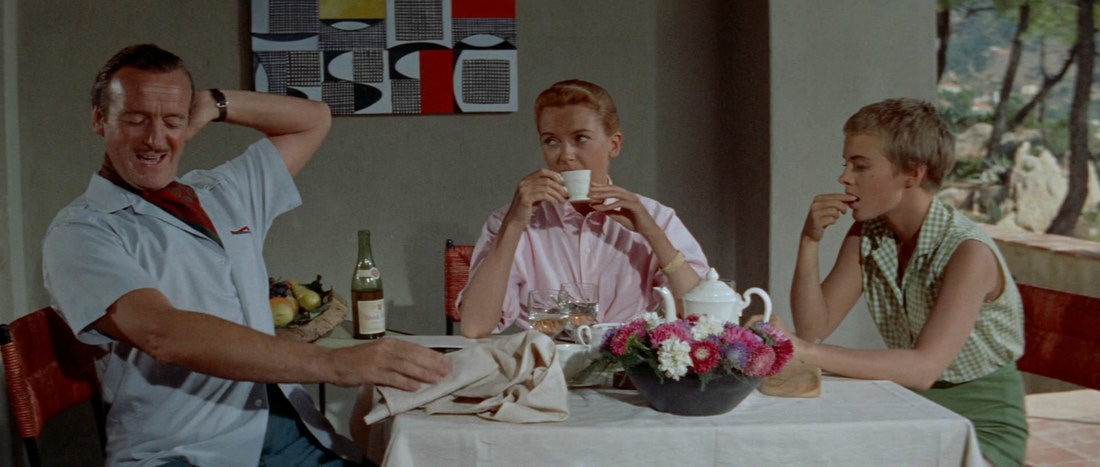
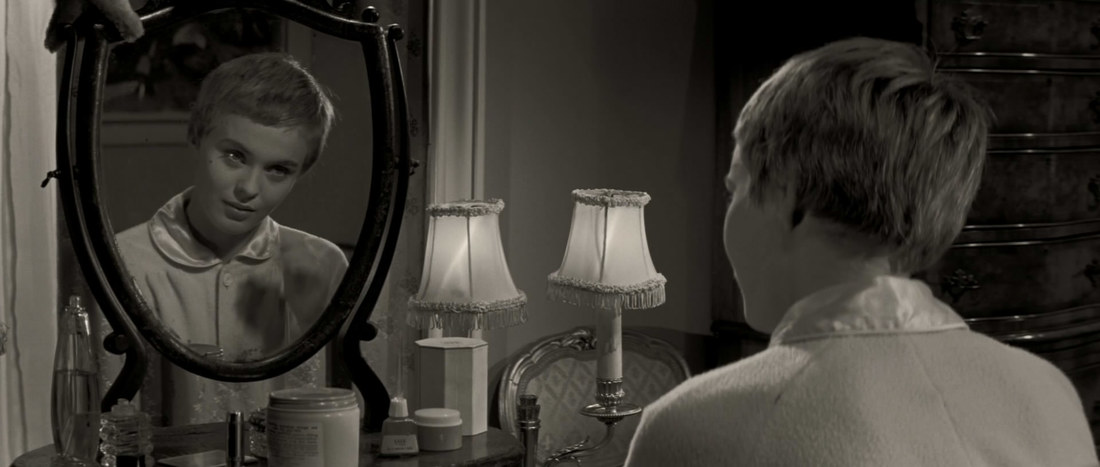

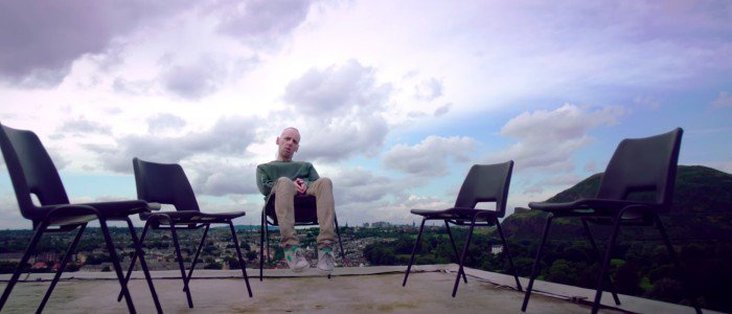
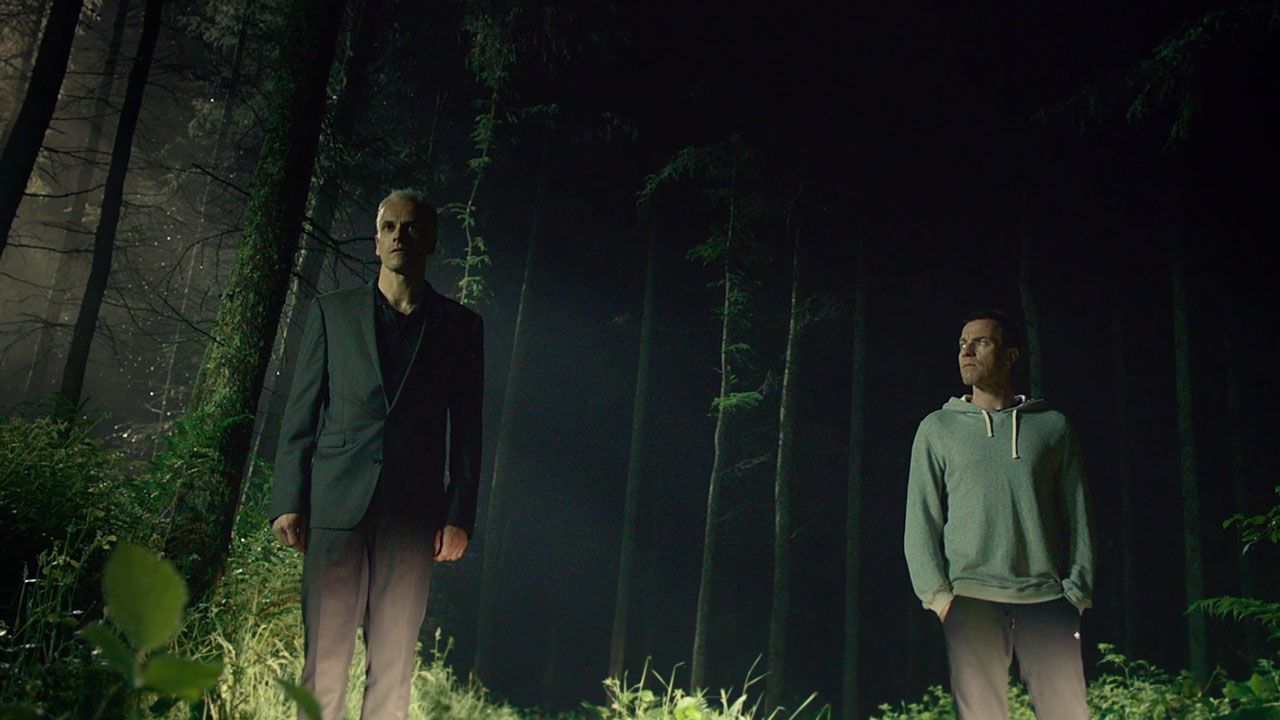
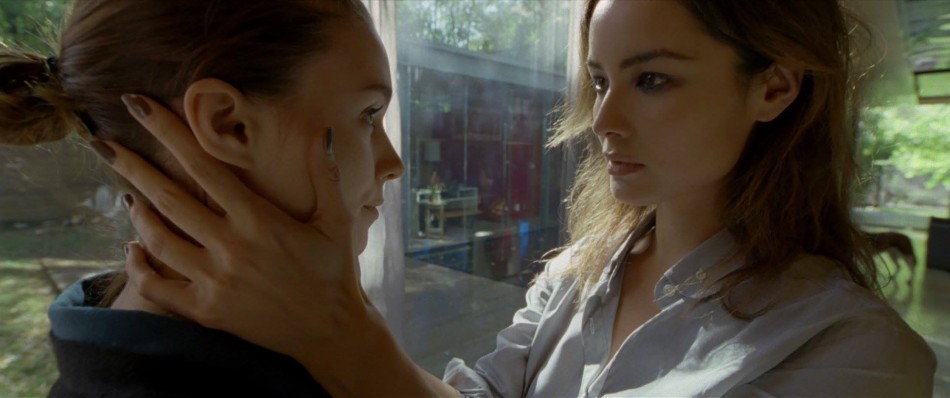
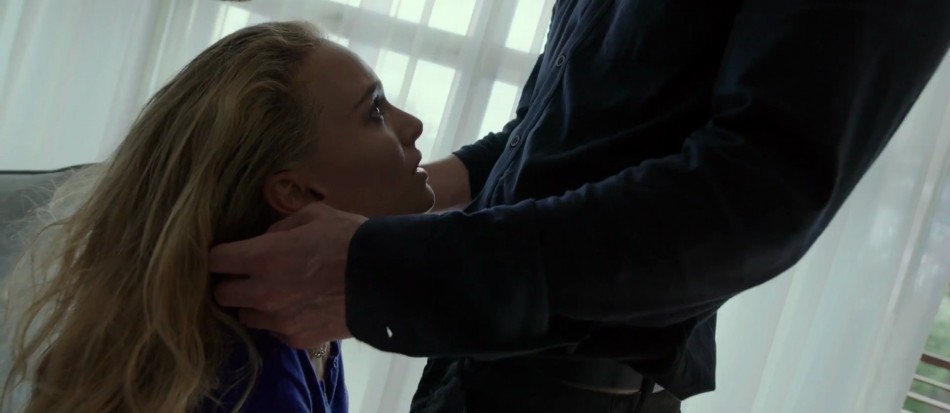
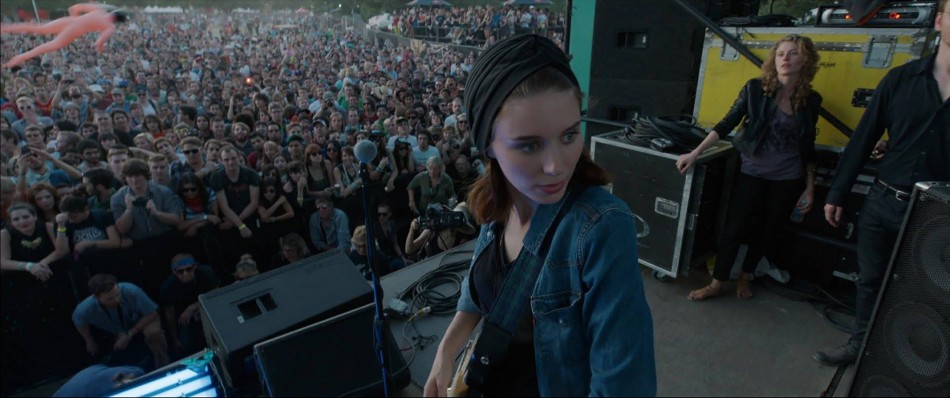
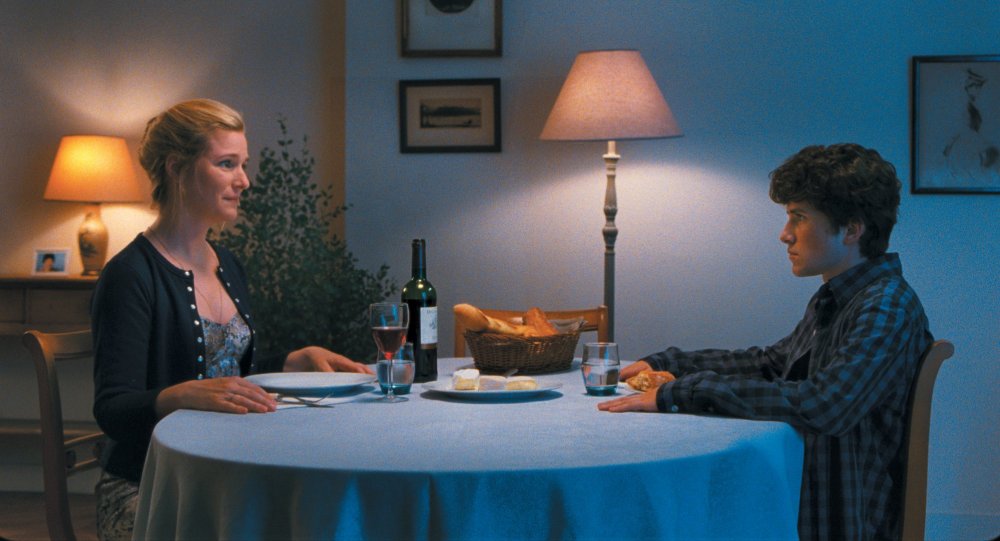
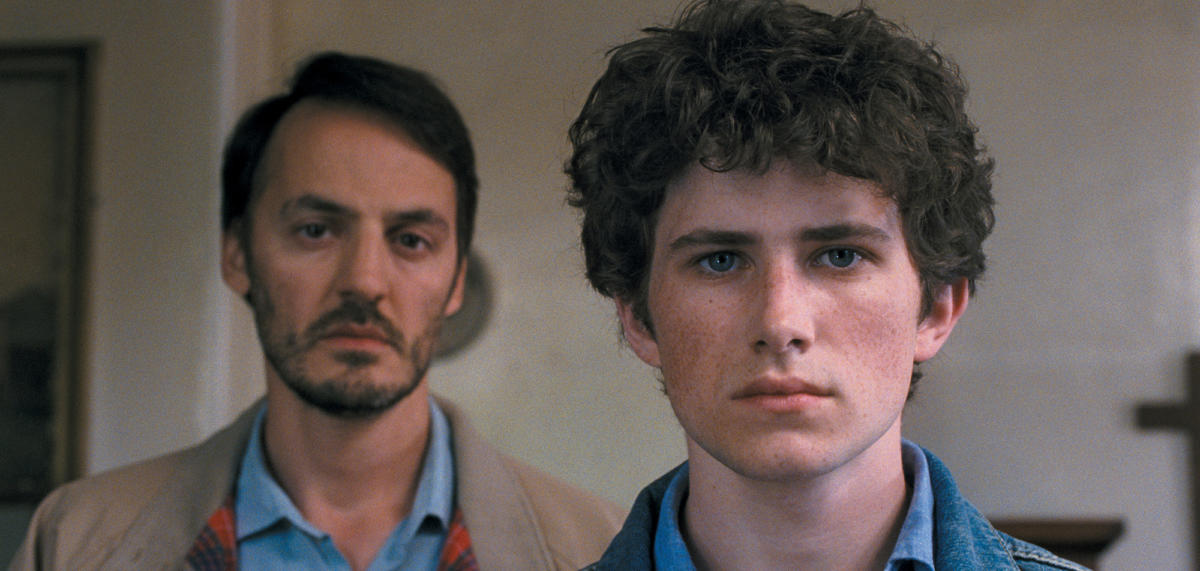
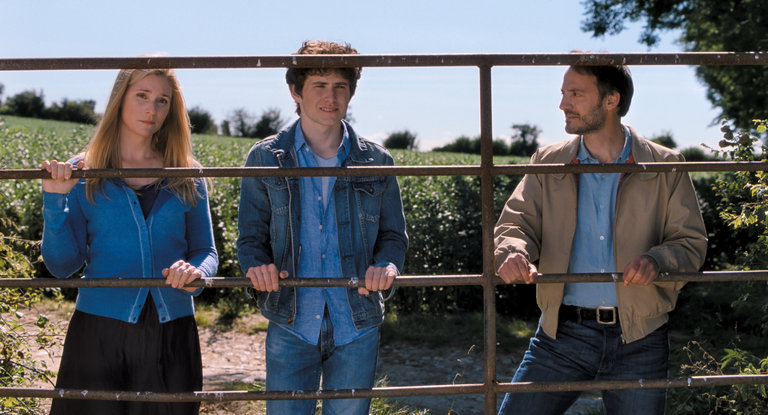
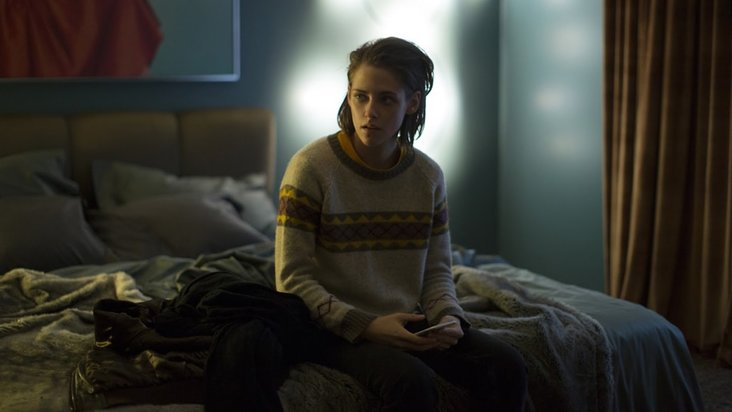


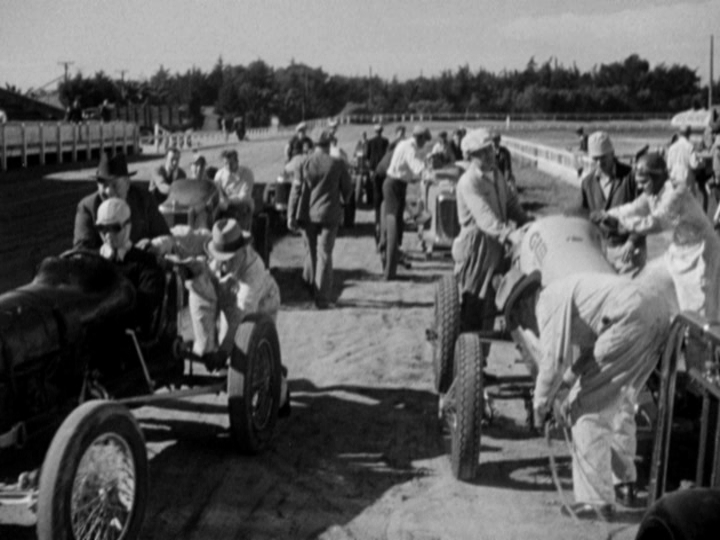
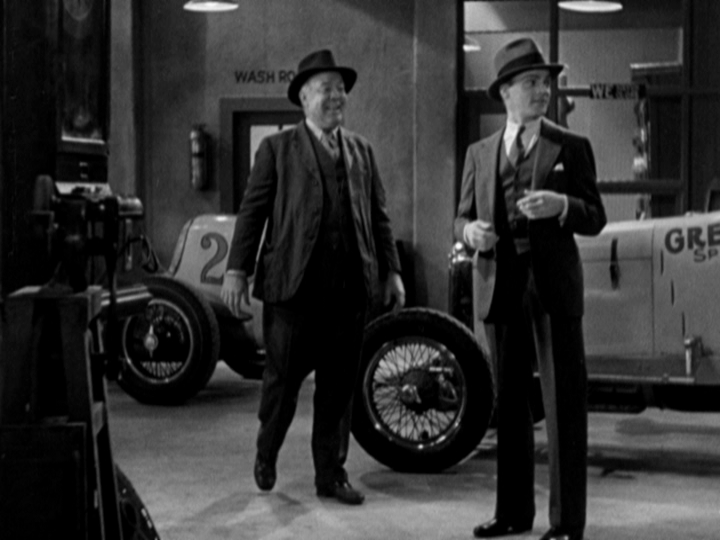
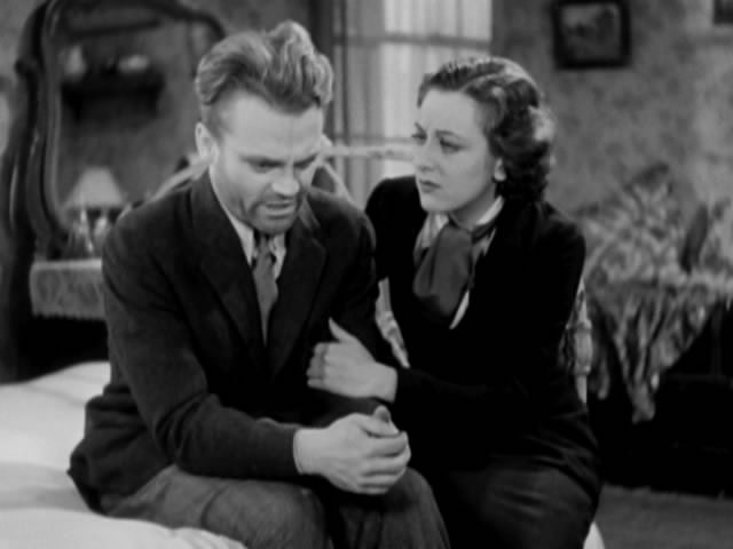
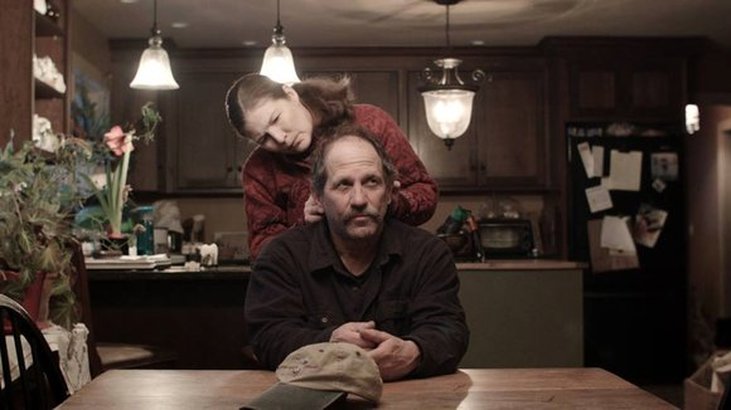
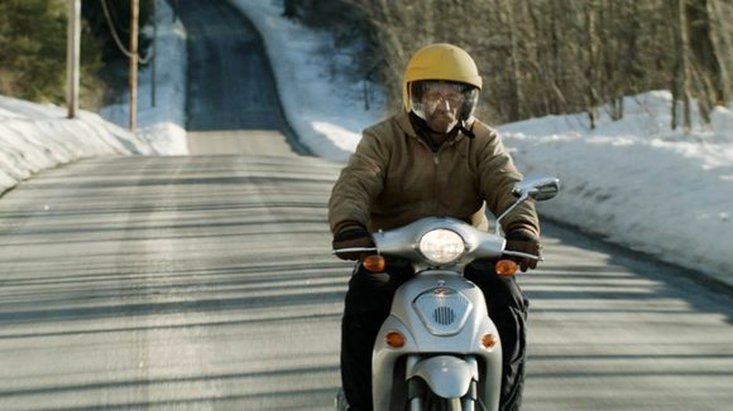
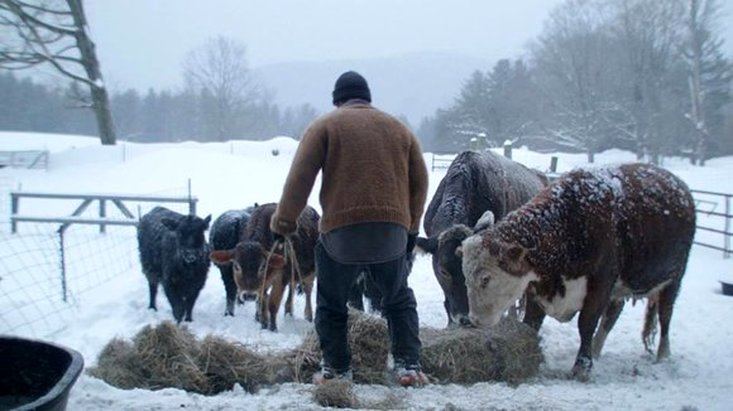
 RSS Feed
RSS Feed
